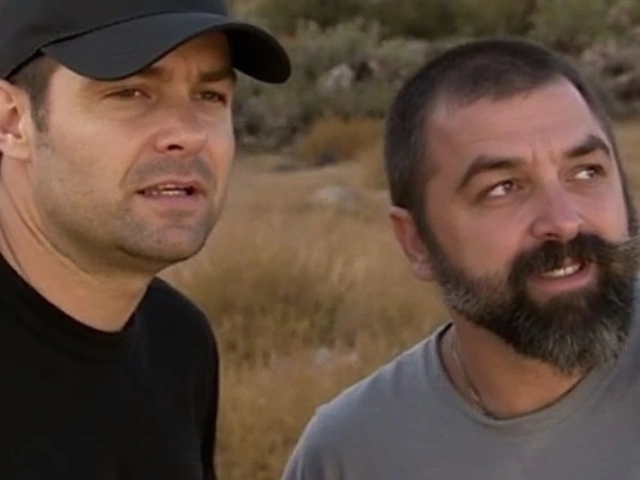Understanding Character Depth in Sports Coaching
When you think about winning games, you probably picture fast athletes and smart tactics. But the hidden factor that separates good teams from great ones is character depth. It’s not just about skill; it’s about the inner qualities that help players stay focused, bounce back from setbacks, and inspire others.
Why Character Depth Matters
First off, character depth gives athletes a stable base. When the pressure mounts – a close score, a bad call, an injury – players with strong character don’t crumble. They keep their heads, follow the game plan, and support teammates. This stability translates into better performance on the field.
Second, it builds a positive team culture. Coaches who value honesty, respect, and accountability set the tone for the whole group. Those values spread like a ripple, making practices smoother and locker‑room talks more genuine. A team that trusts each other can push harder and enjoy the sport more.
Finally, character depth prepares athletes for life beyond sport. The same grit that helps a player train through a tough season also helps them handle a job interview or a personal challenge. Parents and sponsors notice this, opening doors for scholarships and endorsements.
Practical Ways to Build Character Depth
1. **Set Clear Expectations** – Tell your players what attitude you expect, not just what drills to run. Write down core values like “respect,” “effort,” and “team‑first,” and refer to them every week.
2. **Use Real‑World Scenarios** – Bring in short stories or news clips about athletes who faced adversity. Ask the team how they’d respond. This sparks discussion and shows that character is tested outside the gym.
3. **Reward Behaviors, Not Just Results** – Praise a player who encourages a teammate or stays late to help a teammate improve, even if they didn’t score the winning goal. Recognition reinforces the right habits.
4. **Encourage Self‑Reflection** – After every game, have a quick 5‑minute journal session. Players jot down one thing they did well, one thing they could improve, and how they felt. Over time they see patterns and learn to own their growth.
5. **Lead by Example** – As a coach, your actions speak louder than any pep talk. Show up on time, admit when you’re wrong, and stay calm under pressure. Your team will mirror that behavior.
6. **Create Small Leadership Roles** – Rotate responsibilities like warm‑up leader, equipment manager, or game‑day strategist. Giving players ownership builds confidence and accountability.
7. **Integrate Community Service** – Organize a monthly volunteer activity. Helping others outside the sport nurtures empathy and teamwork, two key parts of character depth.
By weaving these habits into your routine, you’ll see players develop resilience, better decision‑making, and a stronger sense of belonging. The result? A team that not only wins games but also grows together.
Remember, character depth isn’t a one‑time lesson; it’s an ongoing practice. Keep the conversation alive, stay consistent with your values, and watch the transformation happen both on and off the field.
Kieran Lockhart, Apr, 14 2025
Craig Mazin's Bold Take on 'The Last of Us' Season 2 Explores Character Depth and Thematic Complexity
Craig Mazin, co-creator of 'The Last of Us,' continues to push boundaries in Season 2, diving deep into character complexities and thematic elements. The season premiere focuses on Joel's vulnerability and introduces new dynamics with characters like Dina and Abby. Despite potential criticism, Mazin remains committed to enriching the narrative, emphasizing human connections and exploring themes like trauma and survival.
View More




